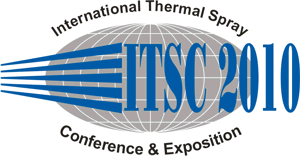
|
| Abstract No.: |
|
Scheduled at:
|
Tuesday, May 04, 2010, Sophia Room 4:40 PM
Gas Turbines 2
|
|
| Title: |
Design of a thick thermal barrier coating to minimize in-service stresses
|
|
| Authors: |
Thomas Coyle* / Centre for Advanced Coating Technologies,
University of Toronto, Canada
Hamed Samadi / Centre for Advanced Coating Technologies, University of Toronto, Canada
|
|
| Abstract: |
Of the many factors affecting the durability and failure mechanisms of thermal barrier coatings, residual and in-service stresses play an especially important role as the thickness of the coating increases. In a thick TBC, a large temperature gradient is expected from the hot surface to the substrate. A low thermal expansion coefficient is desirable for the hot surface to minimize thermally derived stresses and sensitivity to thermal shock. However, a large thermal expansion coefficient mismatch with the metallic substrate limits coating adhesion. A multilayer system may permit these opposing requirements to be satisfied. There are two major points a multilayer coating system must address. First, the materials should be chemically and thermodynamically compatible. Second, the thickness of different layers should be optimized to minimize stress distribution under service conditions. A set of chemically compatible materials in the Al2O3?SiO2?MgO system have been identified which offer a range of thermal expansion coefficients and acceptable thermal conductivities. The design of a multilayer coating employing these materials with complementary thermal properties is described. Coupled analysis of the temperature and stress distribution through the thickness of the multi-layer coating during and after deposition, and under service conditions has been conducted.
|
|
